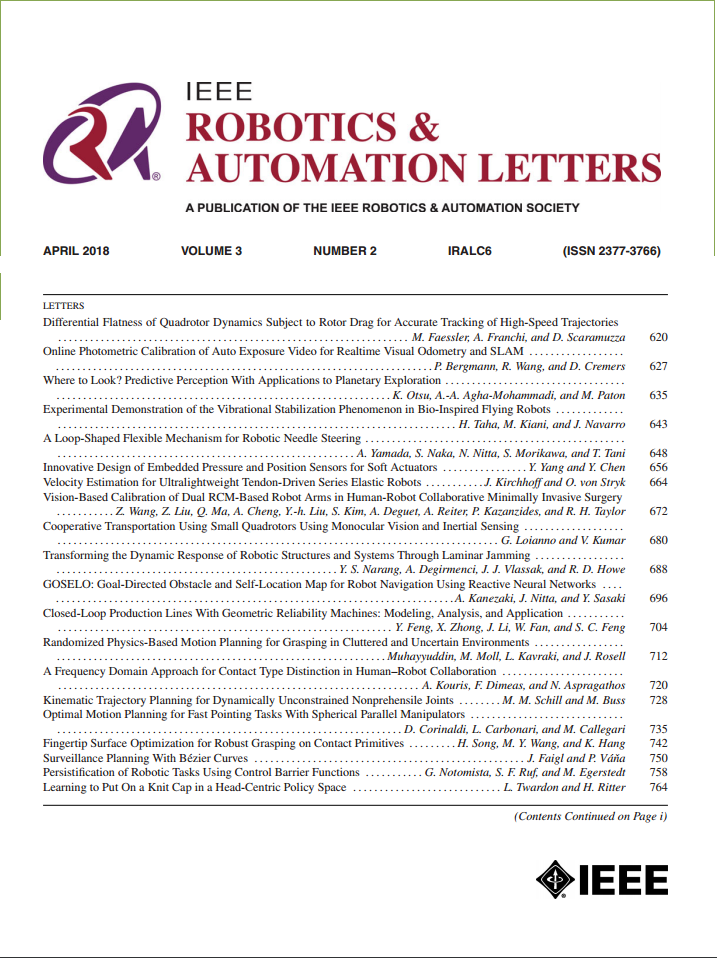A Tightly Coupled and Invariant Filter for Visual-Inertial-GNSS-Barometer Odometry
IF 4.6
2区 计算机科学
Q2 ROBOTICS
引用次数: 0
Abstract
A positioning system that relies solely on observations based on a local frame, such as visual-inertial odometry (VIO), suffers from unobservable directions, leading to cumulative estimation errors over time. To address this issue, we propose a tightly-coupled Visual-Inertial-GNSS-Barometer odometry (GBVIO) based on an invariant filter. The integration of Global Navigation Satellite System (GNSS) and barometric data enables global convergence. Our system supports both tightly coupled updates (using pseudorange and Doppler shift measurements) and loosely coupled updates (using global position data). We prove that the invariant filter using barometric observations remains invariant under stochastic unobservable transformations, thus exhibiting improved consistency. Validation through computer-based Monte Carlo simulations and real-world dataset experiments demonstrates the superiority of GBVIO over standalone VIO. All source code and datasets are publicly available.求助全文
约1分钟内获得全文
求助全文
来源期刊

IEEE Robotics and Automation Letters
Computer Science-Computer Science Applications
CiteScore
9.60
自引率
15.40%
发文量
1428
期刊介绍:
The scope of this journal is to publish peer-reviewed articles that provide a timely and concise account of innovative research ideas and application results, reporting significant theoretical findings and application case studies in areas of robotics and automation.
 求助内容:
求助内容: 应助结果提醒方式:
应助结果提醒方式:


